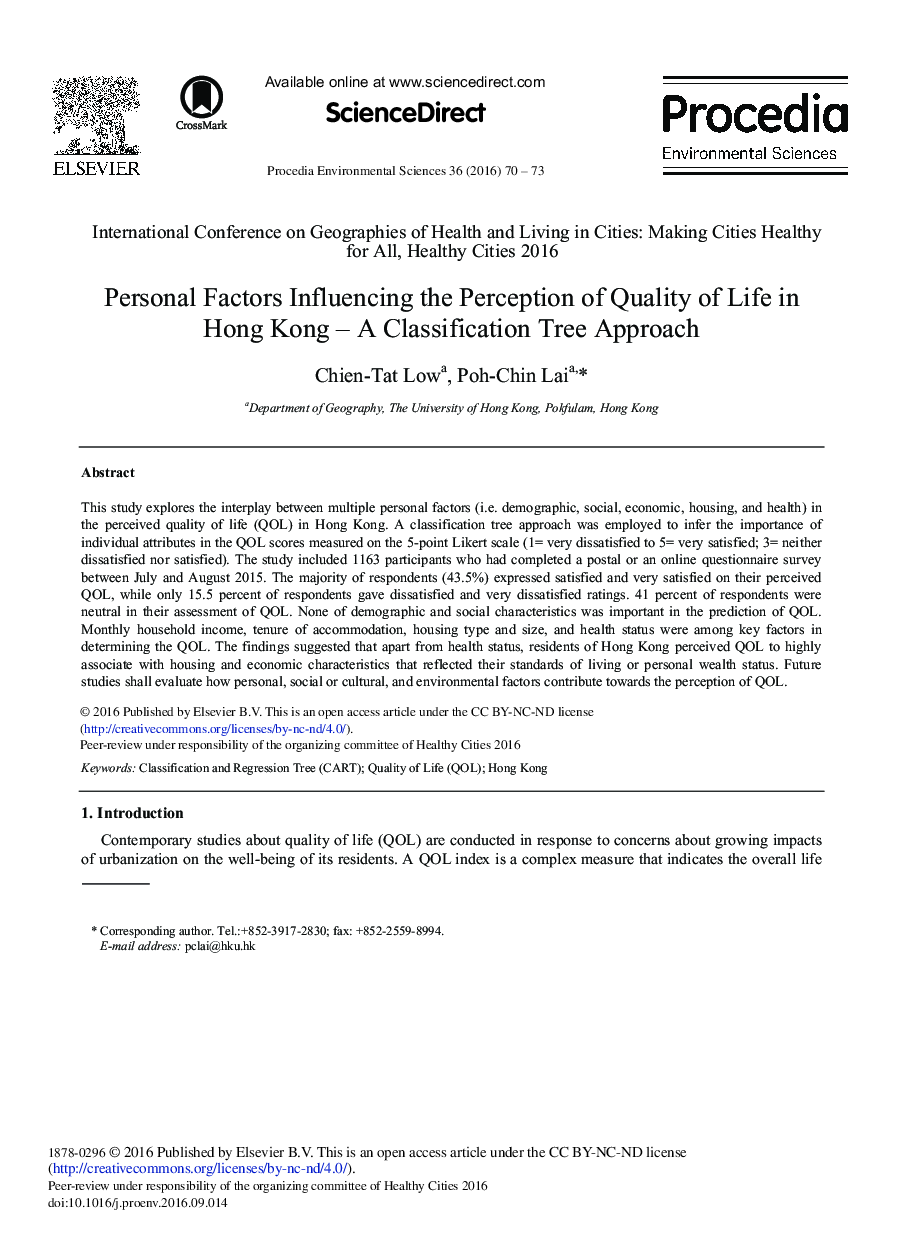| Article ID | Journal | Published Year | Pages | File Type |
|---|---|---|---|---|
| 4401328 | Procedia Environmental Sciences | 2016 | 4 Pages |
This study explores the interplay between multiple personal factors (i.e. demographic, social, economic, housing, and health) in the perceived quality of life (QOL) in Hong Kong. A classification tree approach was employed to infer the importance of individual attributes in the QOL scores measured on the 5-point Likert scale (1= very dissatisfied to 5= very satisfied; 3= neither dissatisfied nor satisfied). The study included 1163 participants who had completed a postal or an online questionnaire survey between July and August 2015. The majority of respondents (43.5%) expressed satisfied and very satisfied on their perceived QOL, while only 15.5 percent of respondents gave dissatisfied and very dissatisfied ratings. 41 percent of respondents were neutral in their assessment of QOL. None of demographic and social characteristics was important in the prediction of QOL. Monthly household income, tenure of accommodation, housing type and size, and health status were among key factors in determining the QOL. The findings suggested that apart from health status, residents of Hong Kong perceived QOL to highly associate with housing and economic characteristics that reflected their standards of living or personal wealth status. Future studies shall evaluate how personal, social or cultural, and environmental factors contribute towards the perception of QOL.
